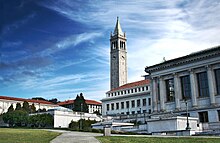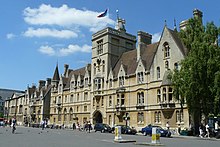Friday, June 24, 2016
aspirin, aspirin dosage, Ecosprin, ecosprin 150, ecosprin 325, ecosprin 75, ecosprin dosage, ecosprin side effects, ecosprin tablets dosage, ecosprin uses, low dose aspirin
Sunday, May 15, 2016
 On his passing in 1873, Johns Hopkins, a Quaker business visionary and childless lone wolf, handed down $7 million (roughly $140,000,000 today balanced for purchaser value swelling) to support a healing facility and college in Baltimore, Maryland. Around then this fortune, created essentially from the Baltimore and Ohio Railroad, was the biggest humanitarian blessing in the historical backdrop of the United States.
On his passing in 1873, Johns Hopkins, a Quaker business visionary and childless lone wolf, handed down $7 million (roughly $140,000,000 today balanced for purchaser value swelling) to support a healing facility and college in Baltimore, Maryland. Around then this fortune, created essentially from the Baltimore and Ohio Railroad, was the biggest humanitarian blessing in the historical backdrop of the United States. The principal name of donor Johns Hopkins is the surname of his awesome grandma, Margaret Johns, who wedded Gerard Hopkins. They named their child Johns Hopkins, who named his own particular child Samuel Hopkins. Samuel named one of his children after his dad and that child would be the college's advocate. Milton Eisenhower, a previous college president, once talked at a tradition in Pittsburgh where the Master of Ceremonies presented him as "President of John Hopkins." Eisenhower countered that he was "happy to be here in Pittburgh."
college, Education, Johns Hopkins University, Johns Hopkins University admission, Johns Hopkins University admissions 2016, universities, university
 In 1866, the private College of California acquired the area involving the present Berkeley grounds. Since it needed adequate assets to work, it in the end converged with the state-run Agricultural, Mining, and Mechanical Arts College to frame the University of California, the main full-educational programs state funded college in the state.
In 1866, the private College of California acquired the area involving the present Berkeley grounds. Since it needed adequate assets to work, it in the end converged with the state-run Agricultural, Mining, and Mechanical Arts College to frame the University of California, the main full-educational programs state funded college in the state. Ten employees and very nearly 40 understudies made up the new University of California when it opened in Oakland in 1869. Frederick H. Billings was a trustee of the College of California and recommended that the school be named out of appreciation for the Anglo-Irish logician George Berkeley. In 1870, Henry Durant, the originator of the College of California, turned into the principal president. With the culmination of North and South Halls in 1873, the college moved to its Berkeley area with 167 male and 222 female understudies and held its first classes.
college, Education, universities, university, University of California, University of California admission, University of California admissions 2016
 Harvard was framed in 1636 by vote of the Great and General Court of the Massachusetts Bay Colony. It was at first called "New College" or "the school at New Towne". In 1638, the school got to be home for North America's first known printing press, conveyed by the boat John of London.[27][28] In 1639, the school was renamed Harvard College after perished priest John Harvard, who was a former student of the University of Cambridge. He had left the school £779 and his library of exactly 400 books.[29] The sanction making the Harvard Corporation was conceded in 1650.
Harvard was framed in 1636 by vote of the Great and General Court of the Massachusetts Bay Colony. It was at first called "New College" or "the school at New Towne". In 1638, the school got to be home for North America's first known printing press, conveyed by the boat John of London.[27][28] In 1639, the school was renamed Harvard College after perished priest John Harvard, who was a former student of the University of Cambridge. He had left the school £779 and his library of exactly 400 books.[29] The sanction making the Harvard Corporation was conceded in 1650. In the early years the College prepared numerous Puritan ministers.[30] (A 1643 production said the school's motivation was "to propel learning and sustain it to family, fearing to leave an ignorant service to the houses of worship when our present priests should lie in the dust".)[31] It offered an exemplary educational modules on the English college model—many pioneers in the state had gone to the University of Cambridge—but acclimated Puritanism. It was never subsidiary with a specific category, yet a considerable lot of its soonest graduates went ahead to end up priests in Congregational and Unitarian churches.[32]
college, Education, Harvard University, Harvard University admission, Harvard University admissions 2016, universities, university
 In 1859, a proposition was submitted to the Massachusetts General Court to utilize recently filled terrains in Back Bay, Boston for a "Center of Art and Science", yet the proposition fizzled. A proposition by William Barton Rogers a contract for the joining of the Massachusetts Institute of Technology, marked by the legislative leader of Massachusetts on April 10, 1861.
In 1859, a proposition was submitted to the Massachusetts General Court to utilize recently filled terrains in Back Bay, Boston for a "Center of Art and Science", yet the proposition fizzled. A proposition by William Barton Rogers a contract for the joining of the Massachusetts Institute of Technology, marked by the legislative leader of Massachusetts on April 10, 1861. Rogers, a teacher from the University of Virginia, needed to build up a foundation to address fast logical and innovative advances. He didn't wish to establish an expert school, yet a mix with components of both expert and liberal training, suggesting that:
The genuine and just practicable object of a polytechnic school is, as I consider, the instructing, not of the moment subtle elements and controls of expressions of the human experience, which should be possible just in the workshop, however the teaching of those logical standards which frame the premise and clarification of them, and alongside this, a full and systematic survey of all their driving procedures and operations regarding physical laws.
college, Education, Massachusetts Institute of Technology, Massachusetts Institute of Technology admission, Massachusetts Institute of Technology admissions 2016, universities, university
 By the late twelfth century, the Cambridge locale as of now had an insightful and ministerial notoriety, because of friars from the adjacent priestly district church of Ely. In any case, it was an episode at Oxford which is well on the way to have framed the foundation of the college: two Oxford researchers were hanged by the town powers for the passing of a lady, without counseling the ministerial powers, who might regularly outweigh everything else (and absolution the researchers) in such a case, yet were around then in struggle with the King John. The University of Oxford went into suspension in challenge, and most researchers moved to urban areas, for example, Paris, Reading, and Cambridge. After the University of Oxford improved quite a while, sufficiently later researchers stayed in Cambridge to shape the core of the new college. With a specific end goal to claim priority, it is normal for Cambridge to follow its establishing to the 1231 sanction from King Henry III conceding it the privilege to teach its own individuals (ius non-trahi additional) and an exception from some charges. (Oxford would not get a comparative upgrade until 1248.)
By the late twelfth century, the Cambridge locale as of now had an insightful and ministerial notoriety, because of friars from the adjacent priestly district church of Ely. In any case, it was an episode at Oxford which is well on the way to have framed the foundation of the college: two Oxford researchers were hanged by the town powers for the passing of a lady, without counseling the ministerial powers, who might regularly outweigh everything else (and absolution the researchers) in such a case, yet were around then in struggle with the King John. The University of Oxford went into suspension in challenge, and most researchers moved to urban areas, for example, Paris, Reading, and Cambridge. After the University of Oxford improved quite a while, sufficiently later researchers stayed in Cambridge to shape the core of the new college. With a specific end goal to claim priority, it is normal for Cambridge to follow its establishing to the 1231 sanction from King Henry III conceding it the privilege to teach its own individuals (ius non-trahi additional) and an exception from some charges. (Oxford would not get a comparative upgrade until 1248.) college, Education, universities, university, University of Cambridge, University of Cambridge admission, University of Cambridge admissions 2016
 The University of Oxford has no known establishment date. Instructing at Oxford existed in some structure as right on time as 1096, however it is indistinct when a college appeared. It became rapidly in 1167 when English understudies came back from the University of Paris. The student of history Gerald of Wales addressed to such researchers in 1188 and the primary known remote researcher, Emo of Friesland, landed in 1190. The leader of the college was named a chancellor from no less than 1201 and the experts were perceived as a universitas or company in 1231. The college was conceded an illustrious sanction in 1248 amid the rule of King Henry III.
The University of Oxford has no known establishment date. Instructing at Oxford existed in some structure as right on time as 1096, however it is indistinct when a college appeared. It became rapidly in 1167 when English understudies came back from the University of Paris. The student of history Gerald of Wales addressed to such researchers in 1188 and the primary known remote researcher, Emo of Friesland, landed in 1190. The leader of the college was named a chancellor from no less than 1201 and the experts were perceived as a universitas or company in 1231. The college was conceded an illustrious sanction in 1248 amid the rule of King Henry III. After question in the middle of understudies and Oxford townsfolk in 1209, a few scholastics fled from the savagery to Cambridge, later shaping the University of Cambridge.
college, Education, universities, university, University of Oxford, University of Oxford admission, University of Oxford admissions 2016